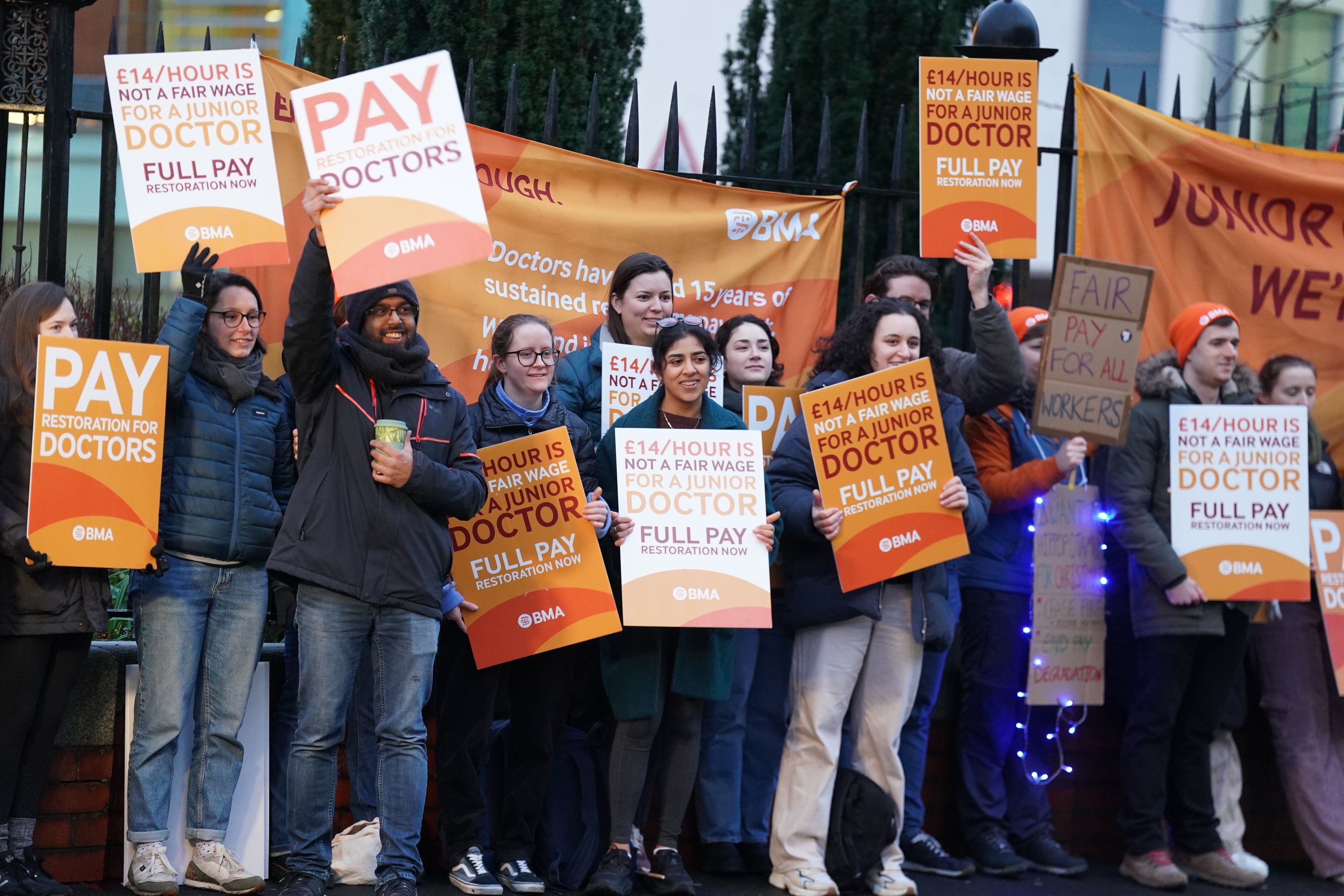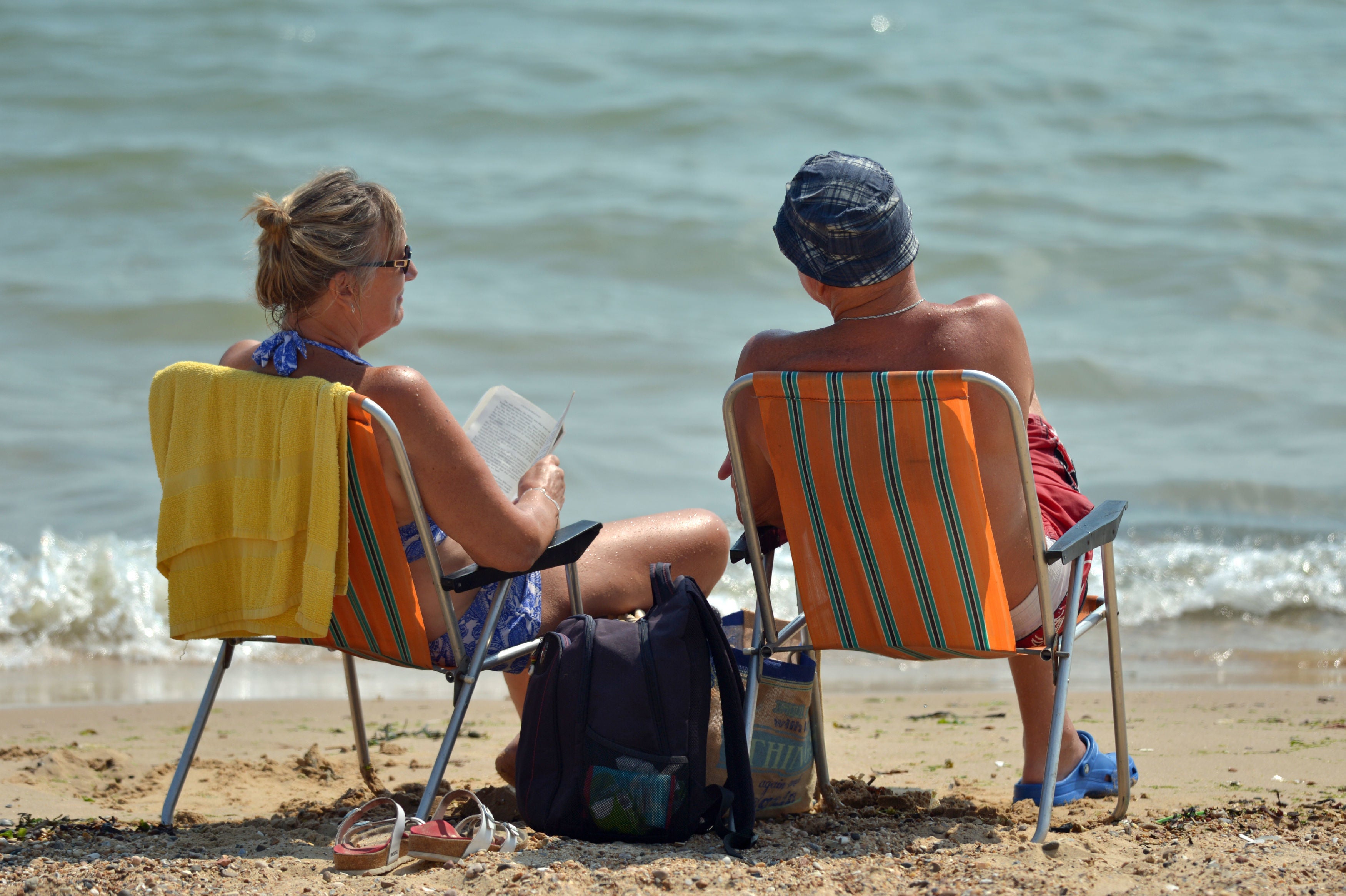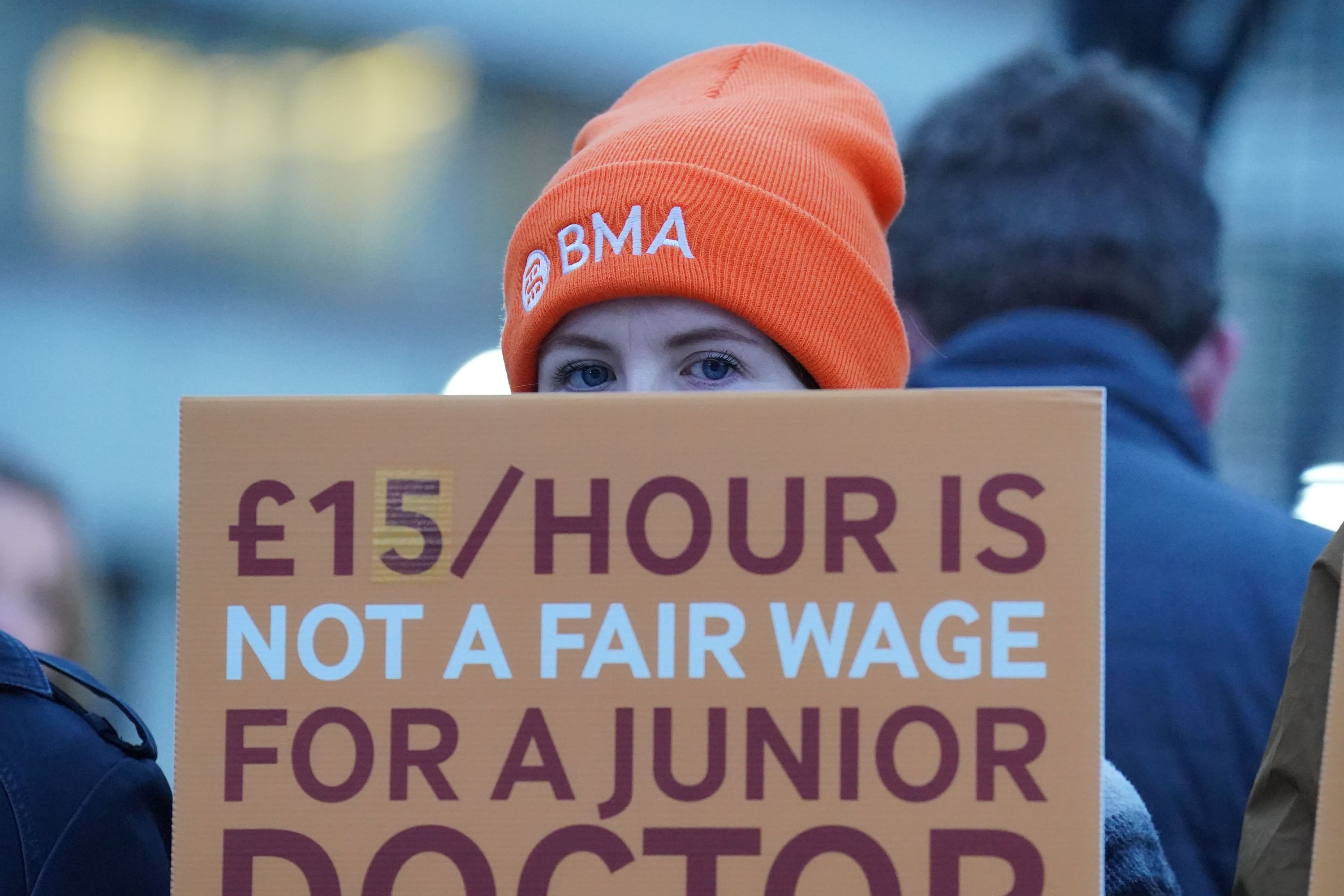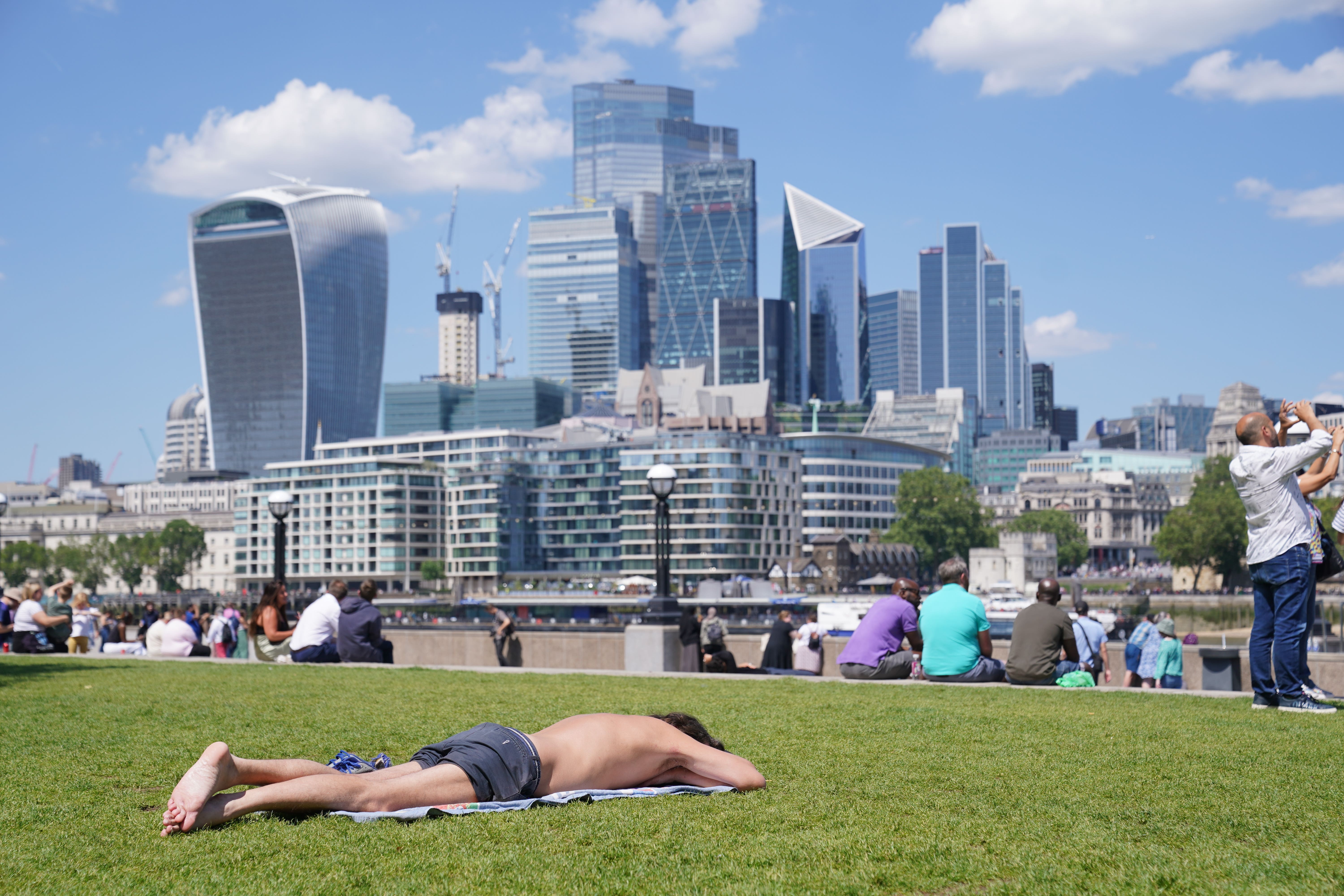NHS warns of major disruption as junior doctors strike begins as temperatures soar in UK
Strike comes as health authorities warn of threat of increased deaths during heatwave

Your support helps us to tell the story
From reproductive rights to climate change to Big Tech, The Independent is on the ground when the story is developing. Whether it's investigating the financials of Elon Musk's pro-Trump PAC or producing our latest documentary, 'The A Word', which shines a light on the American women fighting for reproductive rights, we know how important it is to parse out the facts from the messaging.
At such a critical moment in US history, we need reporters on the ground. Your donation allows us to keep sending journalists to speak to both sides of the story.
The Independent is trusted by Americans across the entire political spectrum. And unlike many other quality news outlets, we choose not to lock Americans out of our reporting and analysis with paywalls. We believe quality journalism should be available to everyone, paid for by those who can afford it.
Your support makes all the difference.NHS leaders have warned the service could see “major disruption” this week as junior doctors strike during a heatwave.
The eleventh walkout of junior doctors is set to begin on Thursday, coinciding with yellow heat health alerts in place across the country as temperatures soar.
Wednesday is forecast to be the hottest day of the year so far with parts of the southeast potentially reaching 31C, according to the Met Office.
The UK Health Security Agency and the Met Office have warned of a threat of increased deaths among older and more vulnerable people.
The forecasters said some areas will see temperatures crossing the threshold for a heatwave, and senior NHS figures have raised concerns that the strike will cause problems at a time of high pressure.
NHS national medical director Professor Sir Stephen Powis, said: “This new round of strike action will again hit the NHS very hard, with almost all routine care likely to be affected, and services put under significant pressure.

“While the warmer weather can lead to additional pressure on services at a time when demand for services is already high.
“As ever, we are working to ensure urgent and emergency care is prioritised for patients, but there is no doubt that it becomes harder each time to bring routine services back on track following strikes, and the cumulative effect for patients, staff and the NHS as a whole is enormous.”

Weather health alerts came into place for most of the country on Monday morning in light of the high temperatures.
The alerts, issued by the UK Health Security Agency and Met Office, warn of the threat of increased deaths among older and vulnerable people.
The East Midlands, the East of England, East Anglia and the South East have been warned of a “potential for significant impacts to be observed across the health and social care sector due to the high temperatures”.
The alerts go on to say there will likely be an “observed increase” in deaths across the population, particularly in the 65+ age group or those with health conditions.

They added there will likely be an increased demand for remote healthcare services.
In light of concerns about the timing of the five-day strike, the BMA announced that some senior junior doctors would be given permission to work at Lewisham and Greenwich, Guys & St Thomas’ and Kings College Hospital trusts during the walkouts to “prevent dangerous delays to cancer care”.
Guys’ and St Thomas’ and King’s hospitals in London are still running at reduced capacity after they were affected by a cyber attack.
“When the junior doctors go on strike, it doesn’t empty the hospital out of doctors, you re-provide what junior doctors are doing with more experienced doctors,” BMA chairman of council, Professor Philip Banfield said.
He added: “In any heatwave warning, if you end up going to emergency departments because of heat, you will be treated as you would on any normal day, you don’t suddenly end up bringing in lots of doctors.
“If any [hospital] finds that there is a cluster of incidents that need doctors to go back into work, then the junior doctors will go back into work.
“So for example, if there was something big that happened at an event like Glastonbury and ended up with tonnes of people being admitted to the hospital, what does the NHS England do?
“It comes and tells us what the situation is, and we say ‘fair, you need two people to go back’.”
Earlier this week, charity Age UK urged people to look out for older friends and neighbours, saying that certain medical conditions can be exacerbated during a heatwave.
Age UK’s charity director, Caroline Abrahams, said: “At Age UK we are anxious about the risk strikes pose to older people’s health.
“We know that the NHS is under considerable pressure and older people really value the care and support they receive from their doctors, but ongoing industrial action is simply unsustainable for NHS services and patients alike.
“Older people should not be left in pain as appointments and operations are cancelled or delayed once again and possible illnesses go undetected.
“Every strike action poses a potential risk to patients, among whom older people form the biggest group.
“There needs to be a settlement and we would urge the next Government to make this a day-one priority – in the meantime we would urge junior doctors to call off the strike action and hold tight until then.”
Join our commenting forum
Join thought-provoking conversations, follow other Independent readers and see their replies
Comments